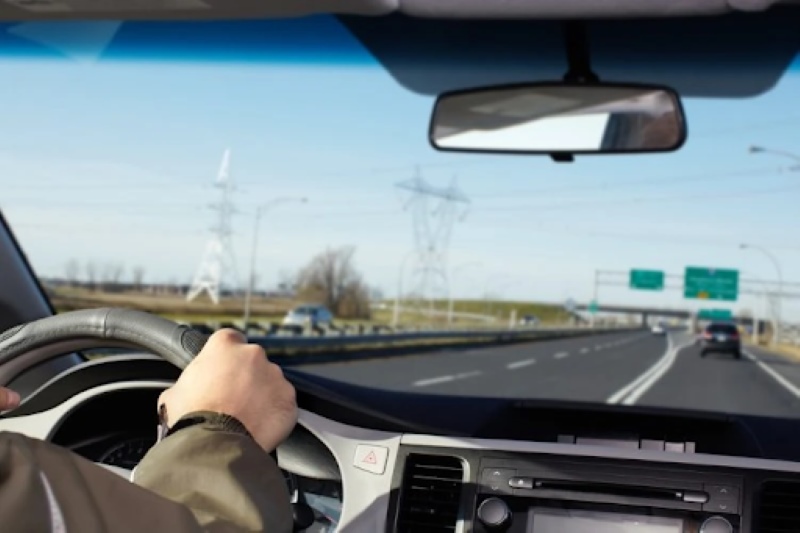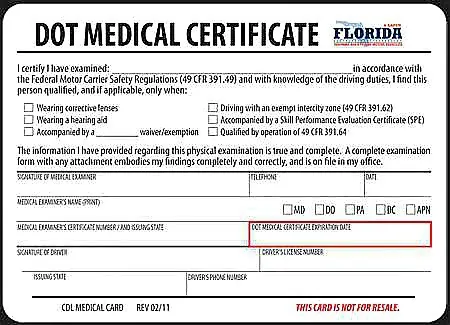Are you struggling with the maze of Colorado CDL requirements? Do not let confusion stand in your way to become a professional commercial driver! Let this guide simplify the requirements for you. We will break down all associated requirements into categories, and then walk you through each category in great detail. From age restrictions, medical standards, and documentation to training and testing, we got you covered. Keep reading to unleash all requirements and ensure eligibility for your Colorado CDL now!
What are Colorado CDL requirements?
Gaining a CDL in Colorado involves many requirements to ensure that only safe and competent drivers are allowed to hit the road. Here are what you should satisfy:
Minimum age
This is dependent on the type of operation for the CDL:
- Intrastate CDL: Applicants must be at least 18 years old to operate a commercial vehicle within Colorado.
- Interstate CDL and special endorsements: Applicants must be at least 21 years old to drive across the state borders or to transport hazardous materials.
Required documents

Original or certified documents must be provided for verification of identity and eligibility. Here is what you should prepare:
- A valid driver’s license issued by Colorado or any other state.
- Proof of full name and date of birth: An original U.S. birth certificate, valid passport, or permanent resident card will suffice.
- Colorado residence proof: Current documents such as utility bills, lease agreements, vehicle registrations, or insurance policies. All must be dated within the last year.
- Social Security Number (SSN): You must provide verification of your SSN by card, W-2, pay stub, or, if allowed, verbally.
Ensure all documents are current and valid in Colorado according to CDL requirements.
Self-certification of your driving type

You will need to self-certify the type of driving you will operate after licensing. Choose a category from the following:
- Non-excepted interstate: For drivers operating a commercial vehicle across state lines and being subject to federal regulations.
- Excepted interstate: Applying to drivers exempted from some federal requirements, such as government or emergency vehicle drivers.
- Non-excepted intrastate: Applying to commercial driving within Colorado without any exemptions.
- Excepted intrastate: For intrastate drivers who are exempt from particular state requirements.
Medical fitness and certification

Applicants for non-excepted CDLs are required to pass a medical fitness examination with an FMCSA-designated medical professional to satisfy health and safety standards. Key considerations include:
- Vision: 20/40 vision in each eye.
- Hearing: Able to hear a whispered voice from five feet away.
- General health: Pass an examination for conditions like diabetes or heart problems.
You will need to obtain a Medical Examiner’s Certificate (MEC) and maintain it to apply for a CDL.
Background and driving record check
Your driving record is checked for eligibility to drive a commercial vehicle. You will be disqualified for the following:
- Convictions of DUI or reckless driving.
- Felonies using a commercial vehicle.
- Violations of out-of-service orders or railroad crossing rules.
A Commercial Learner’s Permit (CLP)
Before you can take the CDL skills test, you must have held a CLP for at least 14 days. You must pass knowledge tests in general knowledge, air brakes, combination vehicles, and any additional endorsements required for the type of vehicle you will be driving.
| Knowledge test | Number of questions | Number of mistakes allowed |
| General knowledge (mandatory) | 50 | 10 |
| Air brakes (if applicable) | 25 | 5 |
| Combination vehicle (if applicable) | 20 | 4 |
| Passenger endorsement (if applicable) | 20 | 4 |
| School bus endorsement (if applicable) | 20 | 4 |
| Double/Triple endorsement (if applicable) | 20 | 4 |
| Hazmat endorsement (if applicable) | 30 | 6 |
| Tanker endorsement (if applicable) | 20 | 4 |
Entry-Level Driver Training (ELDT) program
New CDL applicants and current CDL holders seeking specific upgrades are required to complete federally required ELDT, which includes:
- Theory training: Classroom or online sessions that cover CDL rules and safety.
- Behind-the-wheel training: Practical driving sessions with training by an FMCSA-approved trainer.
Skills test for CDL
The CDL skills test assesses your capability to handle a commercial vehicle safely and it has three sections:
- Pre-trip inspection: Test your ability to conduct a routine safety check on the vehicle before driving.
- Basic control skills: Check your ability to perform various maneuvers such as backing, turning, and parking.
- On-the-road test: Assess your ability to drive in real traffic conditions to demonstrate control and follow the rules of the road.
By meeting these requirements, you will be awarded a Colorado CDL which opens the door to a fruitful career in the commercial driving industry.
FAQs
1. What are Colorado CDL permit requirements?
To apply for a CLP in Colorado, you will have to meet the following requirements:
- Be at least 18 years old for intrastate driving or 21 for interstate and hazardous materials.
- Have a valid driver’s license.
- Provide your proof of identity, residency, and Social Security number by providing original or certified documents.
- Pass a written test in the class of CDL and any endorsements you wish to obtain.
- Hold the CLP for at least 14 days before taking the CDL skills test.
2. What are CDL age requirements in Colorado?
The age requirements for obtaining a CDL in Colorado are based on your intended type of driving to be performed:
- 18 years old: For operating a commercial vehicle within Colorado borders.
- 21 years old: For interstate CDL, hazardous materials endorsement, and passenger transport.
3. What are Colorado class B CDL requirements?
The requirements for Colorado Class B CDL include the general requirements outlined above related to age, documentation medical fitness, testing, and training. Besides, you have to fulfill certain unique requirements as follows:
- Pass the written tests for Class B CDL
- Get training and take skills tests for Class B CDL.
- If operating passenger buses, a passenger (P) endorsement is required.
- If operating a school bus, drivers must obtain an S endorsement which involves special training and testing for the operation and safety of school buses.
Final thought
Earning your CDL in Colorado is a major milestone in a stable and lucrative career. While the Colorado CDL requirements seem overwhelming at first glance, this guide helps you simplify them and make your preparation more straightforward and smoother. Please remember that each requirement ascertains the safe and efficient operation of a commercial vehicle. Make sure to fulfill them all, not only for obtaining a CDL license but also for ensuring public safety on the road. If you have any questions related to Colorado CDL, feel free to leave a comment or contact us. Always here to help!



